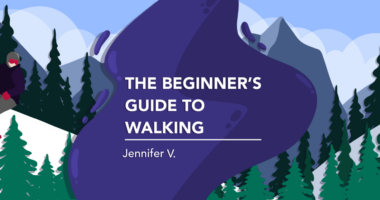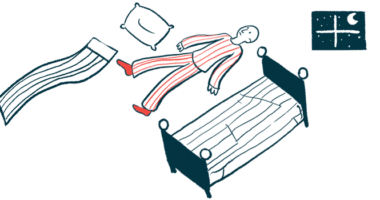Sometimes I Leave My Kitchen Dirty, and Other NMO Confessions

I’ve been so exhausted before that I’ve said, “No one will know if I leave the kitchen looking like this.”
Dirty dishes will be piled up in the sink, while clean dishes are still in the dishwasher. A sticky substance might appear on the counter, but thankfully the black marble hides it well. A funky smell will emerge from the fridge, but after emptying all the leftovers, I still can’t find it.
I’ve gone out and had a lovely time, only to return home feeling completely spent. The stairs up to our bedroom often feel insurmountable, but somehow I manage.
I know it’s not great for my skin, but I’ve gone to bed wearing makeup. I’ll brush my teeth and sit on our bed, trying to find the energy to finish my bedtime routine. That’s when I fall asleep. That great smoky eye always makes me look like a raccoon in the morning.
Our laundry machines are in our basement, which means going up and down two flights of stairs. I’ll eventually get the clean laundry upstairs and have every intention of folding it, but that doesn’t always happen. Wearing clean clothes is a necessity, but folding them prior to doing so is less important. I know I’m in housekeeping hell when there’s a basket for dirty clothes and one for clean clothes, but it requires a sniff test to tell them apart.
Since the pandemic, I don’t drive as often as I used to, but when I do and notice the tank is almost empty, I’ll evaluate if there’s enough gas to get the car home and have my husband fill it on his next outing. I’m grateful that he’s usually ahead of me on this, and he’ll rarely let it dip below half a tank.
Most mornings I wake up and put on workout gear with every intention of fitting in some exercise. I read somewhere that preparing for a workout will help put you into the right mindset. All it does is make me feel guilty when, at the end of the day after life has happened, I still haven’t moved enough. I have a Fitbit that celebrates my weekly accomplishments, but it also sends me passive-aggressive “reminder” emails. I’m still considering if these emails are helpful or hurtful.
Conserving energy
As a patient with a rare autoimmune disease, I’m always debating with myself about how much energy I have each day and what I should use it on. Between my several consulting jobs, my many not-for-profit roles, parenting, being a wife, and sometimes squeezing in my friendships, there’s no room for me to be a patient. I’m irritated when a doctor’s appointment shows up on my calendar, or when I’m told I’m way overdue for bloodwork.
There are things I never considered until I was diagnosed with neuromyelitis optica (NMO). Before my shower, where I’m only standing for five to 10 minutes, I make sure to lay out my clothing on our bed. When I’m going up or down the stairs, I look around to see if anything needs to go either way so that I’m not making multiple unnecessary trips. I plan out my day in half-hour intervals and schedule naps in case my body hits a wall.
This is the daily internal dialogue that only other patients understand. I get frustrated with myself and others when I haven’t planned well enough. Spontaneous visits are not welcome. When something happens unexpectedly, like a sick child or an emergency dental visit, it derails my day in bigger ways than just an interruption. That extra drive and outing might cost everything I have in my energy tank.
The most frustrating part about being a patient is trying to explain to others how I suddenly lack energy. Especially with an invisible disability, it’s tough to articulate how I’m feeling.
With almost 13 years of experience with NMO, I’ve discovered that there is strength in vulnerability. All those things that I leave till tomorrow or feel guilty about? I just have to ask for help. I never want to view my spouse as a caregiver. He does pick up the slack without complaining, but I want it to be a compromise. I’m better at homework duty with our daughter. I also attend every one of her dance competitions, including one that will take place in Portugal next month. Marriage is a never-ending compromise, but then so is every other relationship.
Patients need to stop looking at our lack of energy as a hindrance to life. What we need to do is ask for help and contribute in other ways.
Note: Neuromyelitis News is strictly a news and information website about the disease. It does not provide medical advice, diagnosis, or treatment. This content is not intended to be a substitute for professional medical advice, diagnosis, or treatment. Always seek the advice of your physician or other qualified health providers with any questions you may have regarding a medical condition. Never disregard professional medical advice or delay in seeking it because of something you have read on this website. The opinions expressed in this column are not those of Neuromyelitis News or its parent company, Bionews, and are intended to spark discussion about issues pertaining to neuromyelitis optica spectrum disorder (NMOSD).







